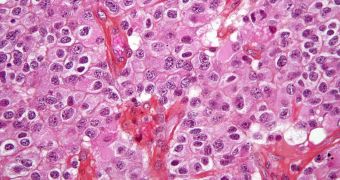Officials from the University of Leeds are proud to announce the inauguration of the first brain tumor research laboratory at the university, and also the only one in Yorkshire, the United Kingdom. The new facility is based at the Leeds Institute of Molecular Medicine (LIMM).
At this point, the project to open this lab is funded for the next five years, but hopes are high that money will be made available to continue running it beyond that time as well.
The LIMM facility is currently being supported by two local charities, Candlelighters and Andrea's Gift, but these groups can only supply limited funds. Experts at the lab hope to persuade more people to donate for research in this sensitive areas.
Between them, the two charities raised about £750,000 to support the lab's operations. The goal of the facility is to gain new and useful insight into how brain tumors emerge, develop and affect the body.
Despite their severity, brain tumor research is severely under-funded around the world. This array of conditions develops unpredictably over time, and is very difficult to treat once detected.
Of all the money being spent on cancer researcher in the entire UK, only less than 1 percent goes to this type of cancer. The lab's job will be to succeed with private funding in an area of research where the government has failed to come through.
“Our vision is to identify novel approaches to treatment that will improve the outcome for patients with brain tumors, including the most aggressive and difficult to treat of brain tumors, glioblastoma,” explains the leader of the new research lab, Dr Sean Lawler.
“We want to understand mechanisms of resistance to therapy and ways to overcome that resistance. This will help us to understand which patients are likely to be benefit from different treatment options,” the expert goes on to say.
The lab has already set up collaborations with local neuro-oncologists, pathologists and neurosurgeons., as well as with scientists at the University of Leeds. This level of cooperation is bound to produce tangible results in a relatively short period of time.
“It is a great cause for celebration for our patients, carers and supporters. Such a lot of hard work has gone into raising this money to give hope to anyone affected by a brain tumor now and in the future,” says Carol Robertson, the fundraiser for Andrea's Gift.
“Brain tumours are the leading cause of childhood cancer deaths in Britain, with half as many more children dying from the illness as from leukemia,” adds Candlelighters spokesperson Sally Amos.
“Figures from the Office of National Statistics show that in 2007 there were 47% more deaths from brain tumors among under-15s than from leukemia,” she adds.
“Yet that is not reflected in the money spent on research. For some types of brain tumors there has been no improvement in survival rates whilst for other cancers, the prognosis is much improved,” she concludes.

 14 DAY TRIAL //
14 DAY TRIAL //